Memory Bandwidth
AIDA64
This program has many tools for determining memory bandwidth as well as various latency values.
Memory Read
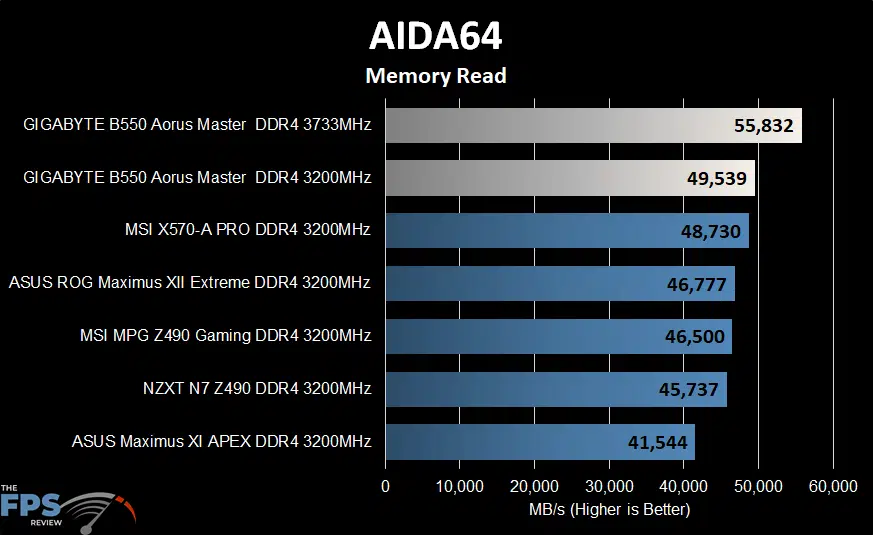
The memory performance of the B550 Aorus Master is about what you would expect. It’s not any different than the X570 chipset in this regard, so the numbers are in the same ballpark. The memory performance increased dramatically when overclocked to DDR4 3733MHz.
Memory Write
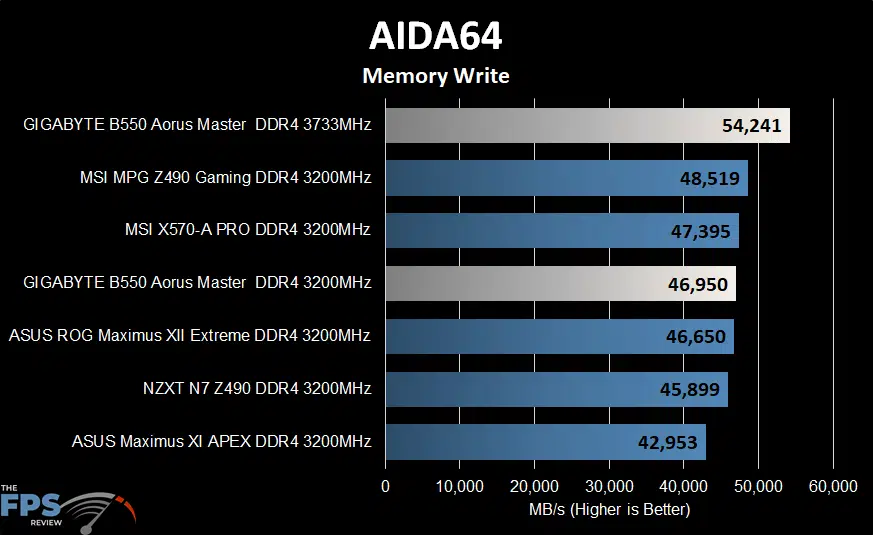
In our memory write test, we saw a result of 46,950MB/s at stock clocks. When overclocked the bandwidth increased to 54,241MB/s.
Memory Copy
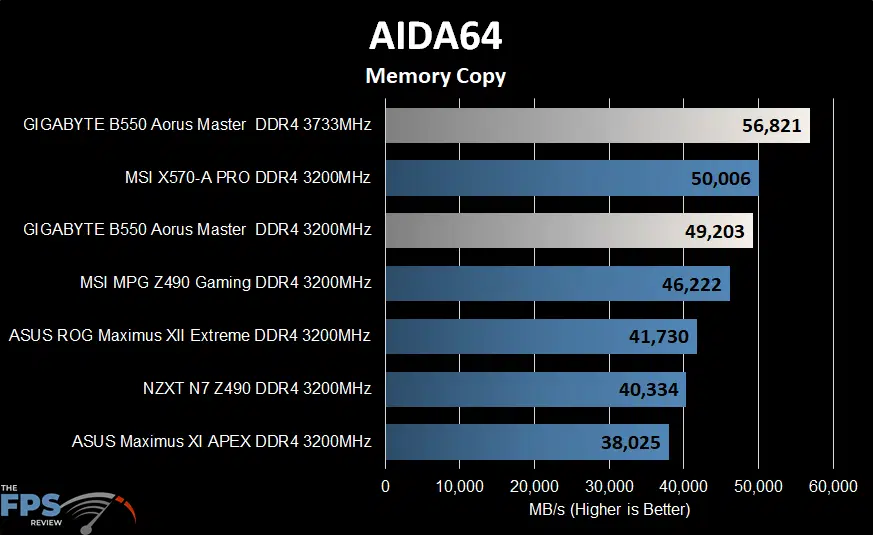
In the memory copy test, we see a result of 49,203MB/s from the B550 Aorus Master at DDR4 3200MHz. At DDR4 3733MHz, we see an increase to 56,821MB/s.
Sandra Memory Bandwidth
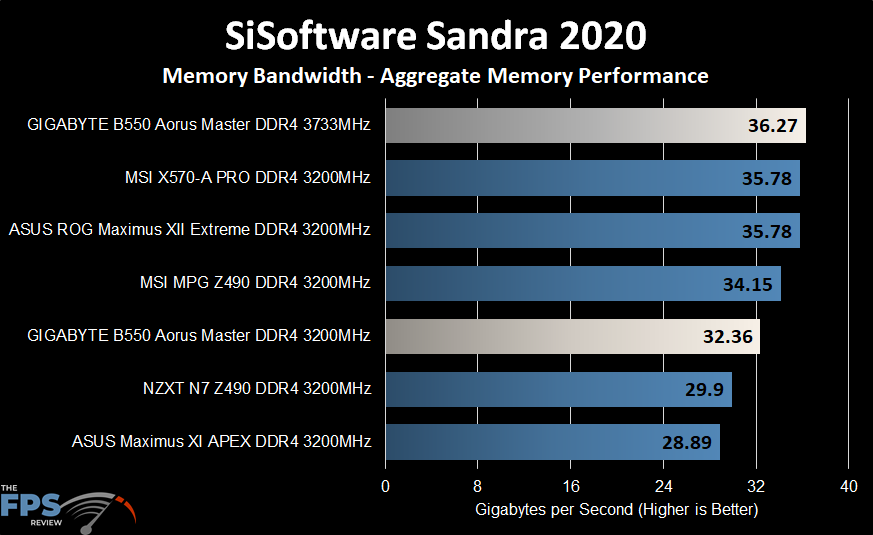
In this test we see a solid improvement in raw memory bandwidth as we jump from DDR4 3200MHz to DDR4 3733MHz. The result was on the low side at 3200MHz, but still within the range we are used to seeing for the AM4 platform.
Application Benchmarks
We are going to start with application and system benchmarks for comparisons, these are the kind of benchmarks that provide an overall performance score to compare with. These are also benchmarks that may either test the system as a whole, including many different real-world workloads, or stress the CPU in ways real-world everyday workloads are performed to produce a performance result.
Geekbench 5
Geekbench 5.1.1 was used for this test. It is a multi-platform test that is comparable across different CPU architectures.
Single Core
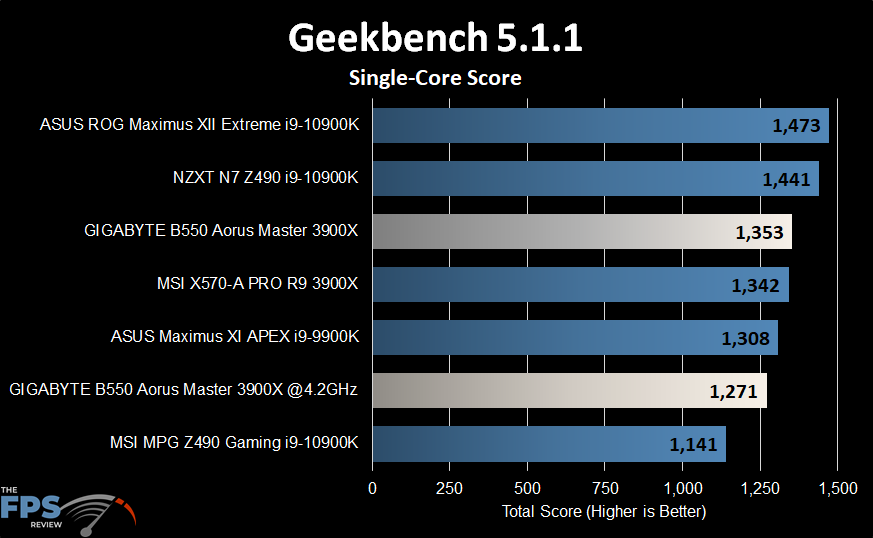
In this test. it’s unsurprising that the single core performance is better when allowing the CPU to boost normally rather than using a lower fixed all core overclock. Even so, Intel’s clock speed advantage allows for higher single threaded scores.
Multi-Core
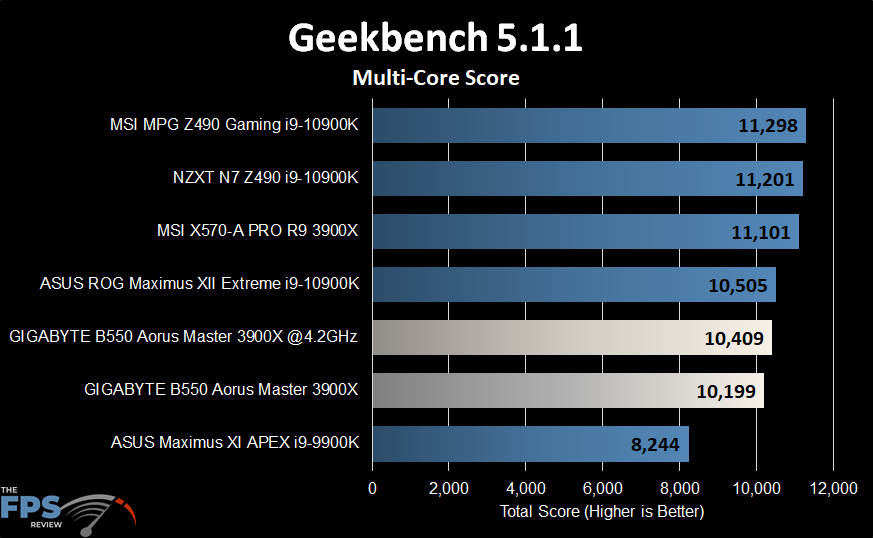
Here there is a bit of a reversal as the all core overclock becomes an advantage in the multi-threaded workload.
AIDA64 CPU Queen
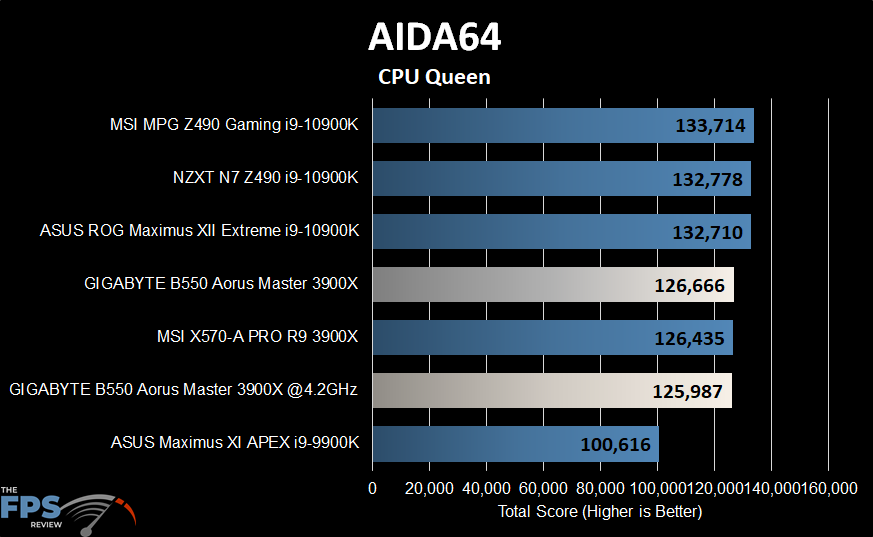
In the CPU Queen test, the B550 Aorus Master achieves a result of 126,666 at stock speeds and 125,987 when overclocked. Again, the boost clocks of the 3900X are considerably higher than what can be sustained via an all core overclock and overclocking is detrimental in this instance. Although, not by much.
SiSoft Sandra
We used SiSoftware Sandra version 2020.5.30.41 for all Sandra testing. The processor arithmetic Dhrystone and Whetstone performance results are represented in GFLOPS.
Dhrystone
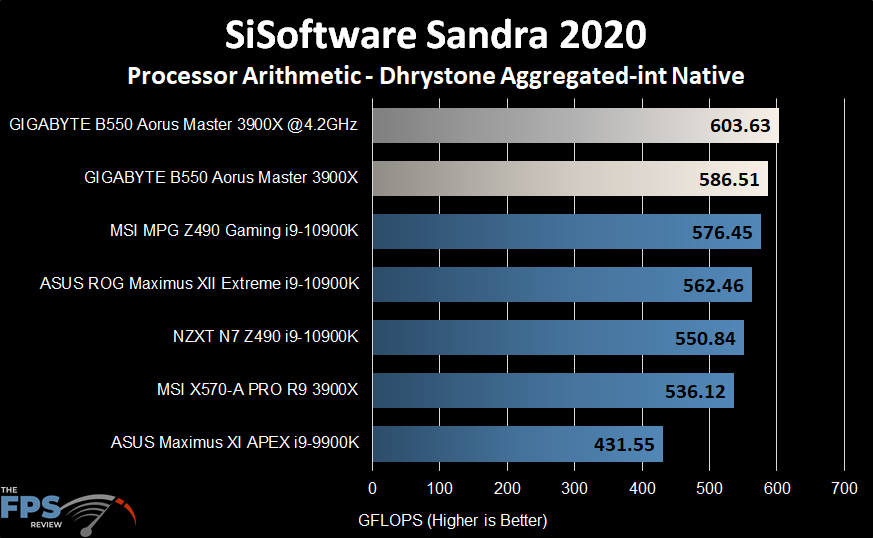
In the Sandra CPU test, all core overclocking gives us a score of 603.63GFLOPS compared to 586.51GFLOPS at stock speeds.
Whetstone
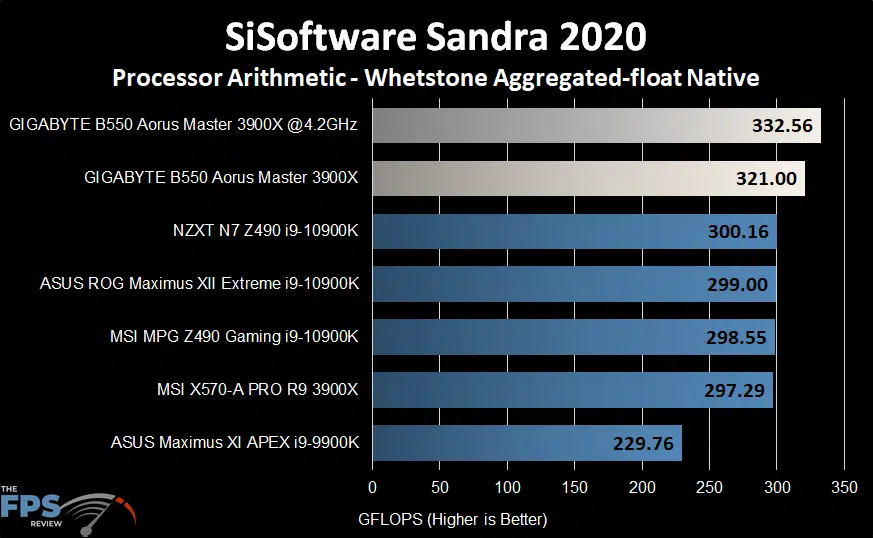
In the whetstone test, we see a more considerable increase in performance with overclocking. In either case, the B550 Aorus Master achieved the highest results in our test lineup.
wPrime
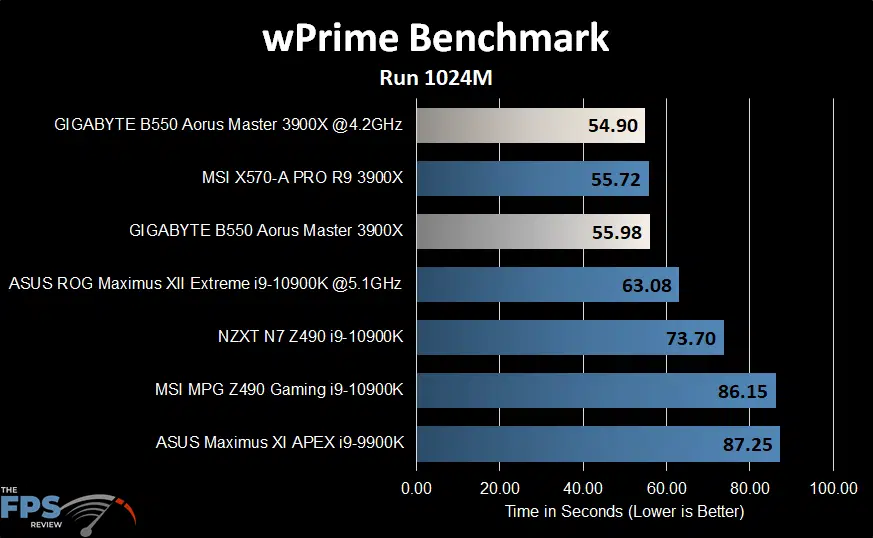
In the wPrime benchmark, we don’t see much of a difference between the overclocked and stock results.
Rendering Benchmarks
Here, we are looking at each CPU’s ability to perform rendering and encoding tasks.
Cinebench R20 Multithread
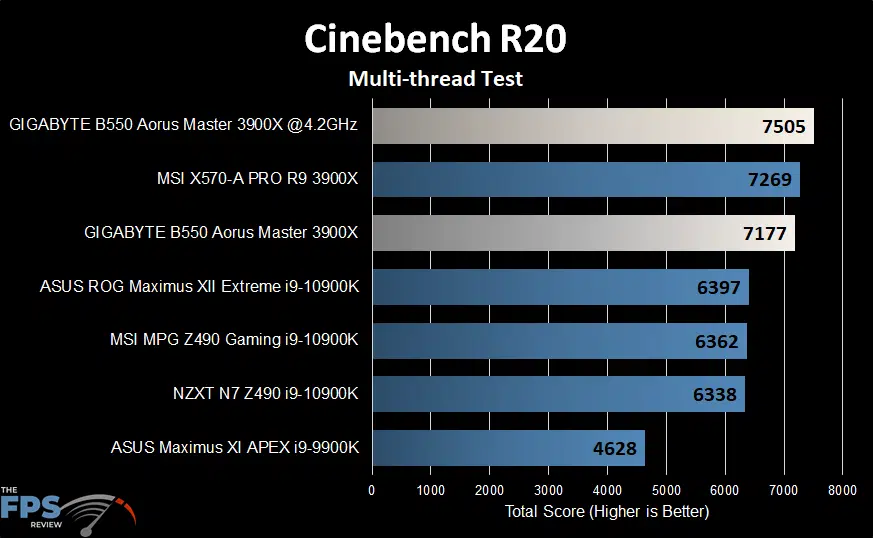
In our Cinebench test, we saw a result of 7177 points at stock speeds and 7505 points when overclocked. The overclocked result was naturally better, as Cinebench is heavily multithreaded.
Cinebench R20 Single Thread
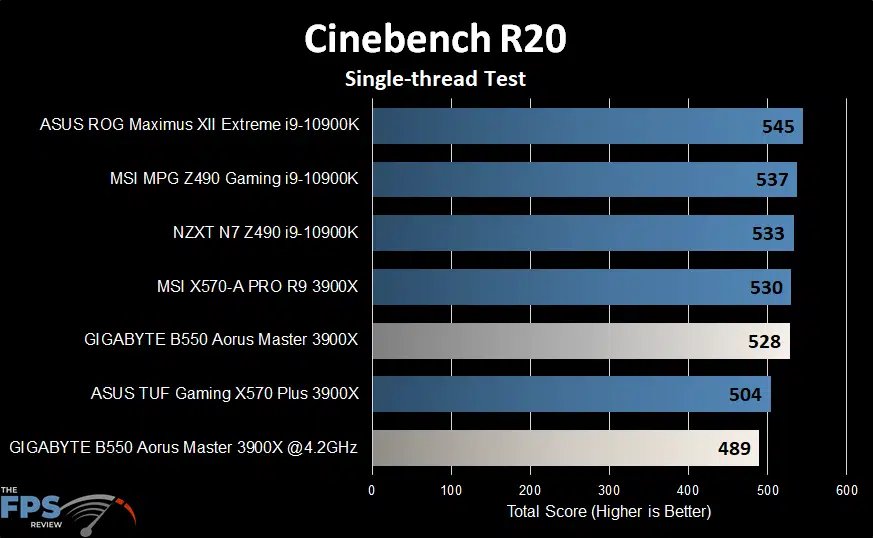
In the single threaded test, the overclocked result was considerably worse than the stock results due to the vast difference in boost clocking vs. the manual overclock.
Blender Open Data Benchmark
This is the Blender Open Beta Benchmark version 2.04. This Blender Benchmark allows you to download multiple demos for rendering and render up to six of them in sequence. This can take an extremely long time to run all of them. You also have the option of testing different versions of Blender from the same launcher. We chose two of the tests out of the six, which seemed to have a longer run time than the others.
Blender pavilion_barcelona
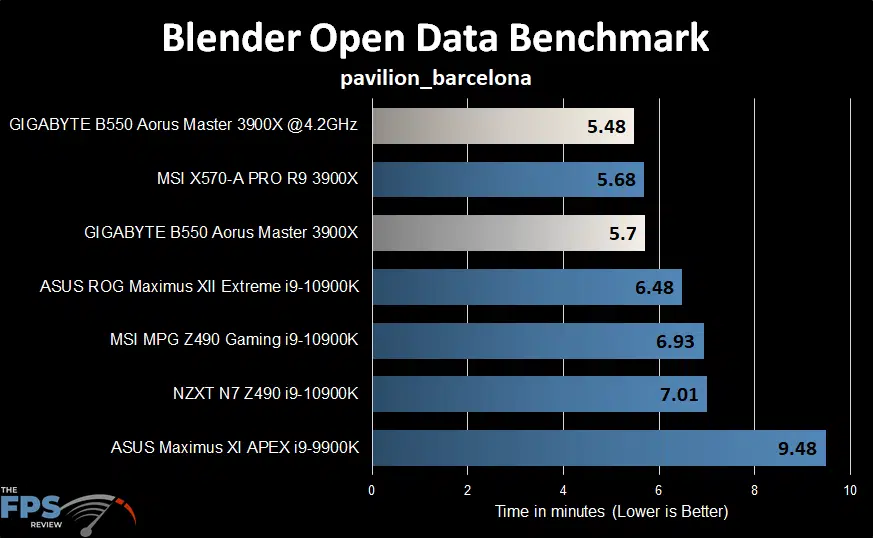
In this test, we see a result of 5.7 minutes from the B550 Aorus Master at stock speeds and 5.48 minutes when overclocked.
Blender Victor
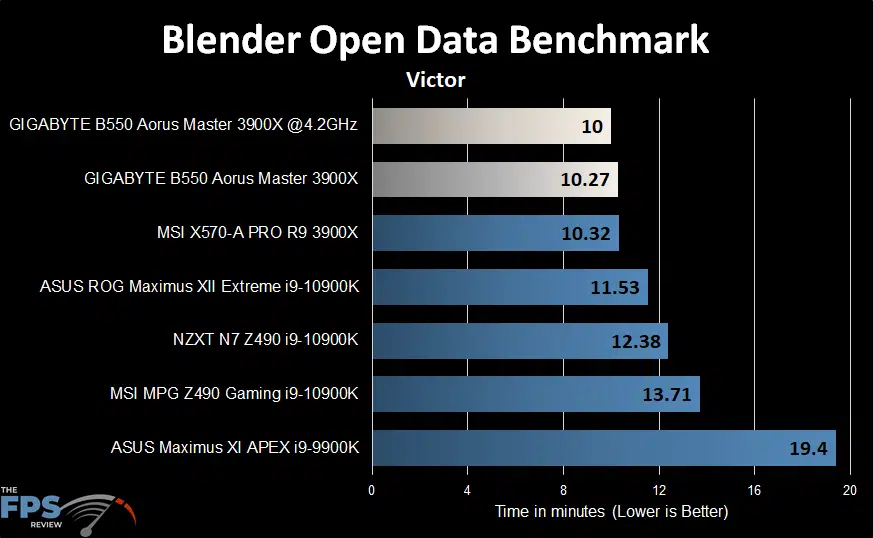
Here we see a result of 10 minutes even using our 4.2GHz all core overclock. Without the overclock the performance was only a little slower at 10.27 minutes.
V-Ray Benchmark
V-Ray 4.10.07 was used for this test.
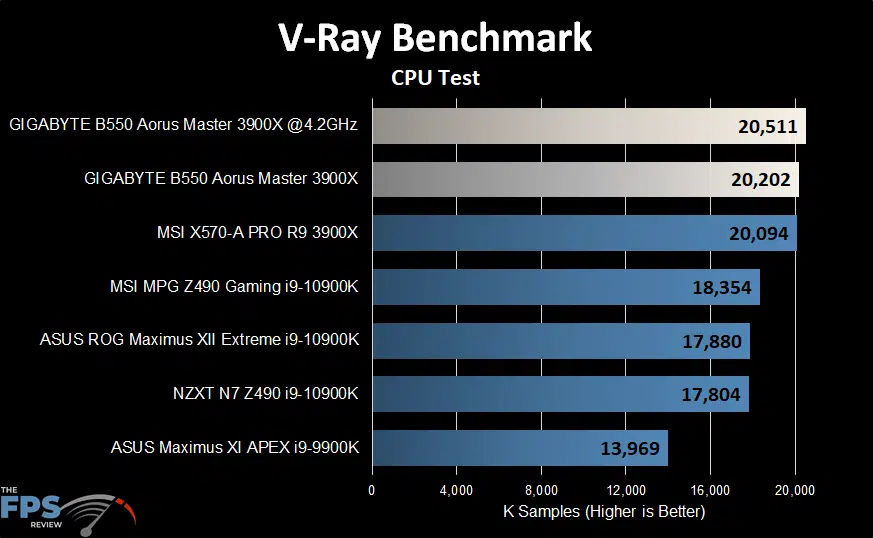
In the V-Ray test, we saw a result of 20,202 K samples at stock speeds and 20,511 K samples. The MSI X570-A Pro wasn’t too far behind at 20,094 K samples.
Handbrake
This is an encoding using the 1080P fast 30 preset. The only changes made to the application were the disabling of GPU acceleration. The video was a 4K video at 4 minutes and 42 seconds in length.
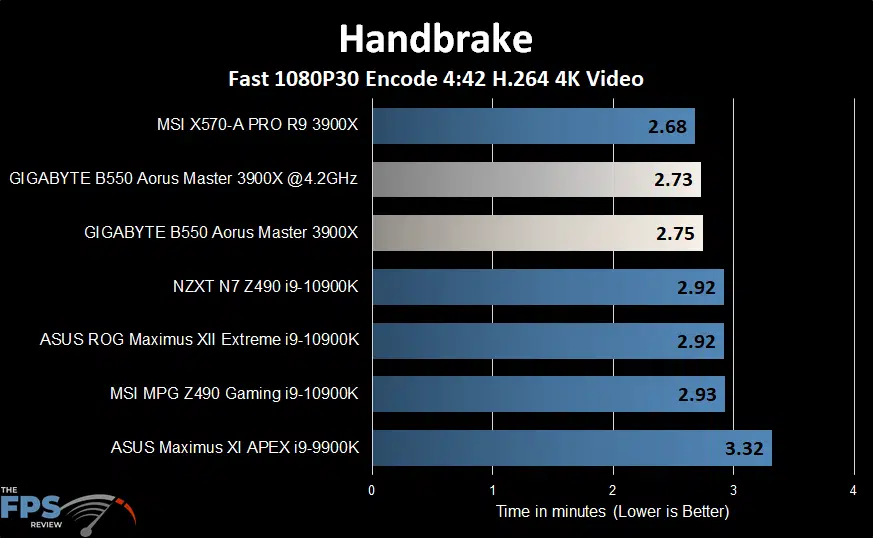
In the Handbrake test, we saw a result of 2.73 minutes when overclocked and 2.75 minutes at stock speeds.
POV-Ray 3.7
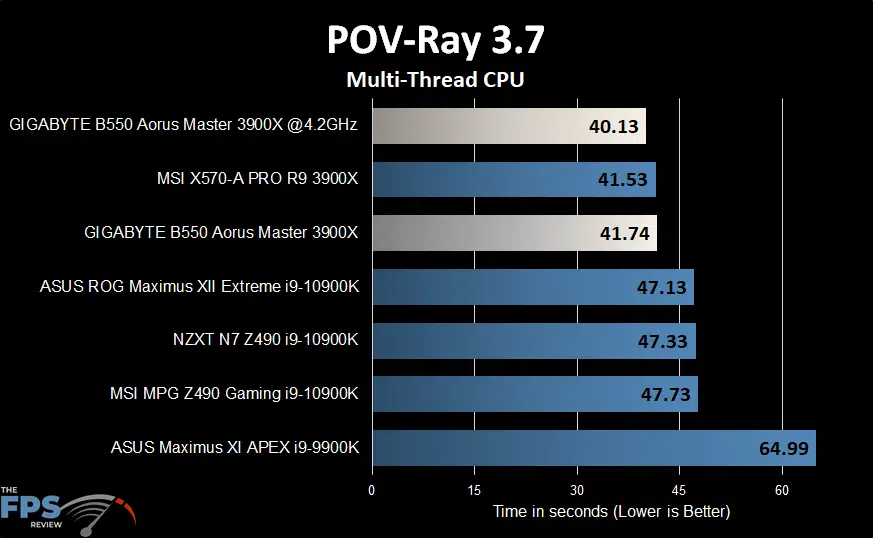
In this test all of the Ryzen systems achieve far better results than their Intel counterparts. Our B550 Aorus Master achieved a result of 41.74 seconds at stock speeds and 40.13 seconds when overclocked.
